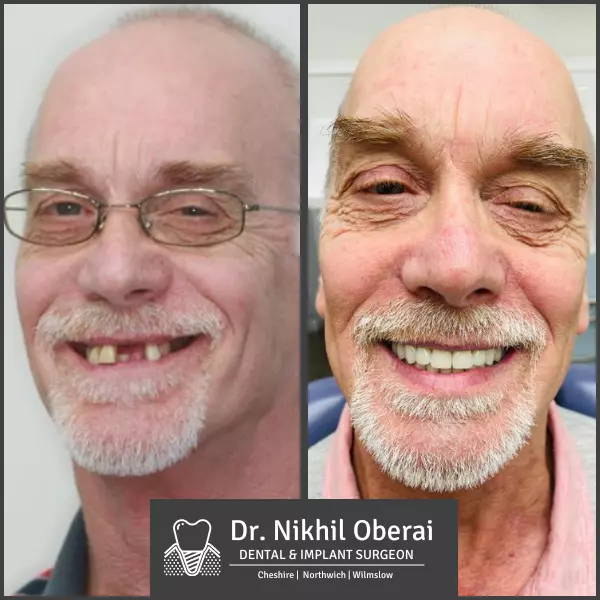Periodontal disease, also known as gum disease, is a common condition that affects a significant number of adults in the UK. It initially manifests as gum disease, characterised by redness, swelling, and bleeding of the gums during brushing. However, if left untreated, gum disease can progress to a more advanced stage known as periodontal disease.
Unlike gingivitis, which can be reversed and prevented, periodontal disease cannot be reversed once it has developed. It is a chronic condition that can lead to tooth mobility and tooth loss if not properly managed.
The primary treatment for periodontal disease revolves around maintaining excellent dental hygiene practices, such as regular brushing and flossing. While these practices cannot reverse the condition, they play a crucial role in preventing its progression. By staying diligent with your oral care routine, you can effectively control the disease and prevent further damage.
It is essential to consult with your dentist or periodontist for a proper diagnosis and personalised treatment plan to manage periodontal disease effectively.
Periodontal disease and our Implant Solution
The loss of teeth caused by periodontal disease can result in the destruction and recession of the supporting bone in the jaw. This can lead to a significant reduction in jawbone volume.
When facing tooth loss due to periodontal disease, you may seek a solution to replace the missing teeth. Historically, dentures have been a common option when dental implants were deemed unsuitable due to the compromised bone.
However, dentures can often be uncomfortable, ill-fitting, and cause difficulties when eating certain foods. They may require daily application of adhesive, which can be inconvenient, and the dentures need to be cleaned thoroughly every night.
We offer advanced denture alternatives such as dental implants that provide a more permanent and natural solution. These implants integrate with the jawbone, ensuring stability and functionality. Our team can assess your specific situation and provide personalised recommendations to help restore your smile with comfort and confidence.

Our Implant Solution
Furthermore, you may have been informed by your dentist that dentures are your only option due to insufficient bone for traditional dental implants.
Fortunately, we have developed an innovative and advanced solution. This groundbreaking treatment offers a unique alternative to all-on-four dental implants and is specifically designed to address complex dental cases.
We utilises pterygoid implants to support full jaw implant prosthetics. With our state-of-the-art clinic, & our highly skilled team, we can custom-design one-piece, screw-retained prosthetics. The best part is that our solution eliminates the need for bone grafting procedures.
By choosing us, you can experience a transformative dental rehabilitation without the limitations of traditional dentures or the requirement for additional bone grafting. Our team of experts will guide you through the process and ensure you achieve a natural-looking smile that restores your confidence.

Dental Implants in Cheshire
In fact, dental implants have the remarkable ability to stimulate bone growth and restore lost bone. The implant becomes fused with the jawbone, providing the necessary stimulation for new bone formation, similar to a natural tooth.
For our full jaw correction procedures, whether it’s the upper jaw, lower jaw, or both, we only require a minimum width of 5mm and height of 10mm, distributed adequately across the jaw. If you decide to go ahead, a cone beam CT (CBCT) scan will be arranged, to thoroughly assess the availability, position, and quality of any remaining bone.
Our experienced team will tailor a treatment plan specifically to meet your unique needs and requirements. During your free consultation, you will discover whether you are a suitable candidate for our meticulously crafted fixed full-jaw dental implant restoration. With our efficient process, you can soon leave our clinic with a beautiful smile in just one day!


Which dental treatment is the best option for missing or failing teeth?
| Dental Implant Solution – the advanced alternative to same day smile treatment | Overdentures | All-on-4 dental implants |
| Treatments are completed in one day – without sinus lifts or bone grafts | Treatment will involve multiple appointments and ends with a fixed denture | Usually involves bone grafts and will be completed over numerous trips to the clinic |
| Each arch is permanently held in place with 4 to 6 implants | 2 to 4 mini- implants are used to achieve overdenture support | Permanent results are achieved using 4 implants per upper or lower jaw |
| A bespoke, screw-retained prosthesis is fitted on surgery day – removing the need for temporary dentures entirely | Temporary dentures are necessary throughout your treatment journey | Temporary dentures and teeth are needed for the duration of your treatment |
| High-quality oral hygiene is more likely due to the design and fitting protocol of the arch | The size of the dentures and the need to remove them and clean the mouth after each meal can result in increasingly poor dental hygiene if neglected | Dental hygiene levels can vary depending on the clinic attended, the fitting procedure, and the experience of the dentist |
| Implant failure is extremely unlikely due to the strict design parameters and the resulting good-quality oral hygiene | Implant failure risk is increased by the three-times-a-day cleaning schedule | Depending on the clinic’s fitting protocols and experience levels, dental implant failure is possible |
| Longer, thinner arches reduce bulk, give more teeth per prosthesis, and leave the palate uncovered, providing the most function and aesthetics | A covered palate and substantial prosthetic can feel unnatural in the mouth | Arches can feature a reduced number of teeth and can feel bulky in the mouth |








